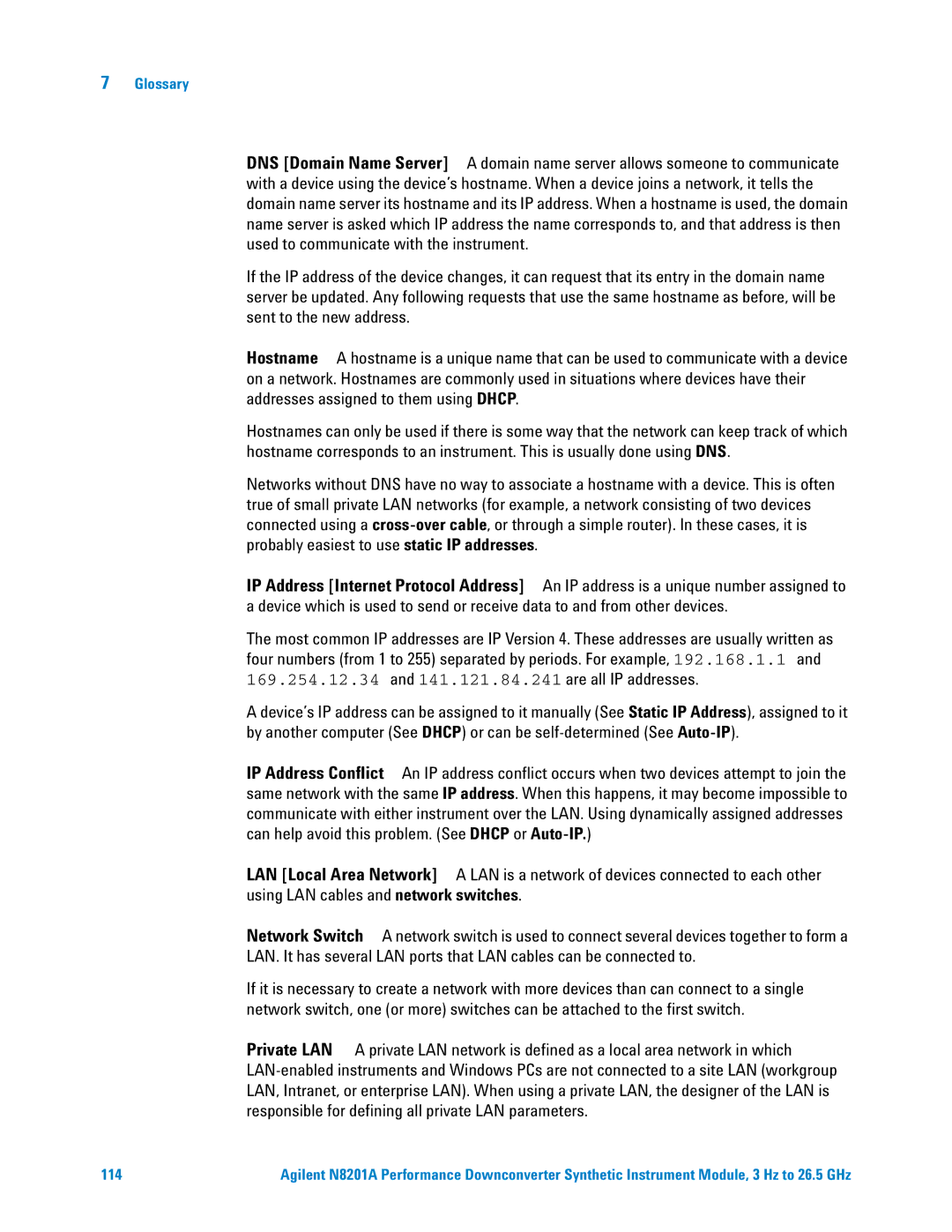7Glossary
DNS [Domain Name Server] A domain name server allows someone to communicate with a device using the device’s hostname. When a device joins a network, it tells the domain name server its hostname and its IP address. When a hostname is used, the domain name server is asked which IP address the name corresponds to, and that address is then used to communicate with the instrument.
If the IP address of the device changes, it can request that its entry in the domain name server be updated. Any following requests that use the same hostname as before, will be sent to the new address.
Hostname A hostname is a unique name that can be used to communicate with a device on a network. Hostnames are commonly used in situations where devices have their addresses assigned to them using DHCP.
Hostnames can only be used if there is some way that the network can keep track of which hostname corresponds to an instrument. This is usually done using DNS.
Networks without DNS have no way to associate a hostname with a device. This is often true of small private LAN networks (for example, a network consisting of two devices connected using a
IP Address [Internet Protocol Address] An IP address is a unique number assigned to a device which is used to send or receive data to and from other devices.
The most common IP addresses are IP Version 4. These addresses are usually written as four numbers (from 1 to 255) separated by periods. For example, 192.168.1.1 and 169.254.12.34 and 141.121.84.241 are all IP addresses.
A device’s IP address can be assigned to it manually (See Static IP Address), assigned to it by another computer (See DHCP) or can be
IP Address Conflict An IP address conflict occurs when two devices attempt to join the same network with the same IP address. When this happens, it may become impossible to communicate with either instrument over the LAN. Using dynamically assigned addresses can help avoid this problem. (See DHCP or
LAN [Local Area Network] A LAN is a network of devices connected to each other using LAN cables and network switches.
Network Switch A network switch is used to connect several devices together to form a LAN. It has several LAN ports that LAN cables can be connected to.
If it is necessary to create a network with more devices than can connect to a single network switch, one (or more) switches can be attached to the first switch.
Private LAN A private LAN network is defined as a local area network in which
114 | Agilent N8201A Performance Downconverter Synthetic Instrument Module, 3 Hz to 26.5 GHz |
